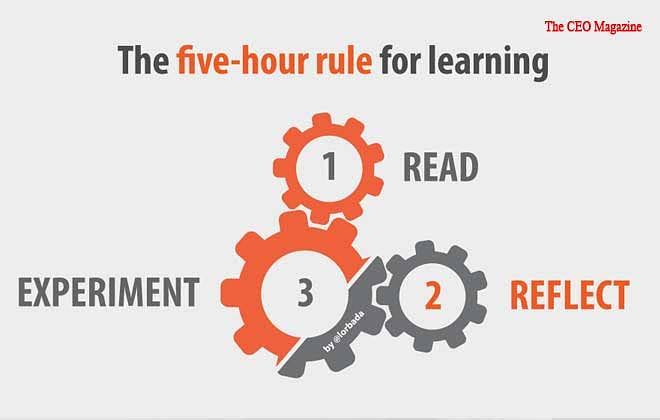
If you know about the 5-hour rule, you’re probably someone who wants to make it big. As the proverb goes, success doesn’t come overnight. Now being the greatest comes with hard work and sacrifices. While waiting for this, we want to emphasize sacrifice, as one has to let go of the most important leisure-killing items like television, social media, etc.
We all love some time to ourselves. But we seem to get way too distracted, and this is where the 5-hour rule kicks in.
It might benefit your life and profession to set aside a certain amount of time each day to acquire or practice new abilities intentionally. Using the 5-hour rule enables you to increase your knowledge and skill set regardless of your field of employment. Your capacity to benefit from the 5-hour rule can play a significant role in both your career and personal growth. This article explains the 5-hour rule, what it is, how it functions, why you should use it, and how to apply it to increase your knowledge.
What is the 5-hour rule?
According to the 5-hour rule, one should deliberately learn for five hours per week or one hour per working day. This entails blocking out time so that you may focus entirely on learning and growth without being sidetracked by other tasks. Different learning methods are available, and combining them will give you the most well-rounded background learning.
How can you use the 5-hour rule?
The 5-hour rule is easy to adapt, and one only has to do three simple things. Read, reflect and experiment. Studies show that indulging the brain in these activities helps the brain to think better. Let’s find out how to implement these three steps.
Reading
Reading is required for the initial step. Many studies have shown that successful people read a lot. This is how students pick up new information, are exposed to cutting-edge concepts, or discover various professions and cultures. By taking an online course or listening to an audiobook in place of reading, you can still adhere to the 5-hour limit.
Elon Musk, the founder of SpaceX, reads to learn how to build rockets. Bill Gates, on the other hand, is rumoured to read at least 50 books a year and is known to bring books on vacation. Hence, reading is the ultimate key. Start by finishing a chapter if you believe you are a sluggish reader. If you’ve never read before, you might want to start with novels that are simple to understand.
Reflecting
One of the most crucial components of learning that enhances performance is reflecting. It might be as simple as writing your thoughts down or staring at the wall. Additionally, remembering the past helps you identify mistakes you made and areas where improvement is needed. It might involve reflecting and taking journal entries.
Make sure to schedule some additional time each day for reflection, even if it is only for the first 10-15 minutes. Prior to asking a question, be aware of it. Start out by sticking to just two or three questions that are relevant to that day.
Experimenting
Rapid experimentation is the third and last bucket. Due to their experiments, Thomas Edison and Ben Franklin came forth as the most renowned inventors and scholars. Similarly, today Gmail is here because Google motivated innovation among its workers.
Because experiments provide facts rather than preconceptions, they are beneficial. You can learn from experiments what works. While experimenting, the most important thing is to learn from mistakes and grow. Experimenting even takes less time to implement. Most of the time, you test by engaging in activities that you would typically do without testing.